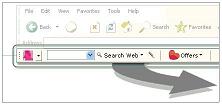
|
|
[Job Applications] [My CV] [Covering Letters] [[Interview Techniques] [Oral Presentations] [Psychometric Tests] Oral Presentations :: You may be asked to prepare, and deliver, a presentation as part of the interview process. The employer will want to assess your oral communication skills. Can you present your case in a way that your audience will understand and find interesting? Setting the scene The employer may ask you to prepare your speech before the day of your interview, or you may be given a limited time for preparation once you have arrived at the interviewer's premises. Sometimes you can choose the subject of your talk, possibly from a list of suggested titles. Otherwise, you will be given the topic. You will normally be told the maximum time for the duration of your presentation, for example three minutes or fifteen minutes. Audio-visual equipment such as a whiteboard, overhead projector or flipchart may be available. Your audience will consist of your interviewers and possibly the other candidates. Expect the interviewers to make notes as they assess your performance. Examples of presentations requested by employers
Tips to improve your performance
Your notes Reading your speech aloud can sound stilted and you will not be able to look at your audience. Use brief notes consisting of key words on note cards. Make sure you number the cards and use large writing and a highlighter pen so that you can follow them when under pressure. Your body language Be aware of your body language:
Using visual aids Visual aids should be used to help the audience to understand the point you wish to make. They can make your presentation more effective. People retain 10% of what they hear, but retain 50% of what they hear and see.
What can you do now? Many people are afraid of speaking publicly, but, the more you practise the more your performance will improve. Learn to use an overhead projector. There is a knack to using them confidently. Take opportunities to give presentations to your fellow students. Further information
|
|
||||||||||
|
|||||||||||

